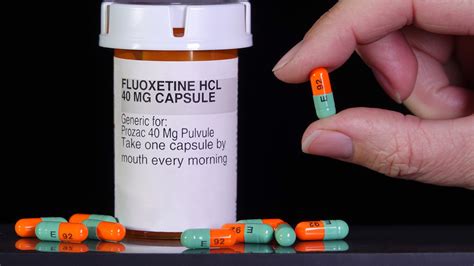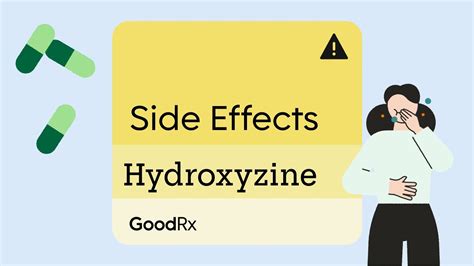Plaquenil psoriasis
Author: m | 2025-04-08

5.4 Worsening of Psoriasis. Administration of PLAQUENIL to patients with psoriasis may precipitate a severe flare-up of psoriasis. Avoid PLAQUENIL in patients with psoriasis, unless the benefit to the patient outweighs the possible risk. 5.4 Worsening of Psoriasis. Administration of PLAQUENIL to patients with psoriasis may precipitate a severe flare-up of psoriasis. Avoid PLAQUENIL in patients with psoriasis, unless the benefit to the patient outweighs the possible risk.

Plaquenil and Psoriasis - Psoriasis - Inspire
Treating mood disorders, the drug would not be discontinued unless the psoriasis symptoms are unmanageable.Stopping a MedicationThough a drug may very well be impacting your psoriasis, never stop taking a prescribed medication without consulting your healthcare provider. Instead, contact your rheumatologist or dermatologist to schedule a complete evaluation. If a drug is identified as the culprit, the dose may be adjusted or treatment stopped based on symptoms and/or medical needs. Antimalarials Used to treat malaria as well as rheumatoid arthritis and lupus, antimalarial drugs are known to induce and aggravate psoriasis. Of the antimalarials commonly implicated, Plaquenil (hydroxychloroquine) and chloroquine pose the greatest risk. Most flares develop within weeks of starting treatment. Chloroquine is closely linked to plaque psoriasis and pustular psoriasis. Both drugs are also known to prolong flares for months (particularly if there has been a pustular eruption). Chloroquine is also believed to exacerbate symptoms of psoriatic arthritis. Once antimalarial treatment has been stopped, it may take up to a month for the psoriasis symptoms to resolve. Because of this, such drugs should not be taken by those with psoriasis. Interferons Interferons are a class of drug often used to treat hepatitis C and other diseases. Both interferon-alpha and interferon-beta have well-known associations with psoriasis. Interferon-alpha, used to treat viral hepatitis, leukemia, kidney, cancer, and melanoma, is linked to plaque psoriasis and, to a lesser degree, psoriatic arthritis. Interferon-beta, used for multiple sclerosis, can induce a new psoriasis outbreak or exacerbate existing symptoms. Generally speaking, if interferon-alpha or interferon-beta is indicated for treatment, it would only be discontinued if the psoriatic symptoms are intolerable. Terbinafine Terbinafine is a synthetic antifungal used to treat athlete's foot, jock itch, and other common fungal skin infections. Available in both topical and oral formulations, terbinafine has been linked to more widespread psoriatic flares. These most commonly occur with the oral version, known by the brand name Lamisil, which can induce or exacerbate plaque psoriasis, generalized (all-body) pustular psoriasis, and inverse psoriasis. Topical preparations can do the same, most often in the region of drug application. ACE Inhibitors Angiotensin-converting enzyme (ACE) inhibitors like Lotensin (benazepril) and Vasotec (enalapril) are used to control hypertension. Their association with psoriasis is less certain, although people over 50 appear to be at greatest risk. While ACE inhibitors are believed to induce or exacerbate psoriasis, there is evidence that the effect may be limited to people with a family history of psoriasis and specific genetic subtypes of the angiotensin-converting enzyme. If a flare were to occur after taking an ACE inhibitor, the decision to continue or discontinue the drug would be made by a healthcare provider on a case-by-case basis. TNF Blockers Tumor necrosis factor (TNF) alpha antagonists, also known as TNF blockers, are a type of biologic drug used to treat Crohn’s disease, rheumatoid arthritis, and ankylosing spondylitis. They work by suppressing the production of TNF, a type of inflammatory compound closely linked to autoimmune diseases. These include such drugs as: Humira (adalimumab)Enbrel (etanercept)Remicade (infliximab) The triggering 5.4 Worsening of Psoriasis. Administration of PLAQUENIL to patients with psoriasis may precipitate a severe flare-up of psoriasis. Avoid PLAQUENIL in patients with psoriasis, unless the benefit to the patient outweighs the possible risk. Hours CSA Schedule ** View glossary of terms Is not subject to the Controlled Substances Act. Is not subject to the Controlled Substances Act. Pregnancy Category See the full pregnancy warnings document. See the full pregnancy warnings document. Drug Interactions A total of 576 drugs are known to interact with Plaquenil: 224 major drug interactions (717 brand and generic names) 339 moderate drug interactions (1268 brand and generic names) 13 minor drug interactions (42 brand and generic names) A total of 9 drugs are known to interact with Tamiflu: 2 major drug interactions (4 brand and generic names) 5 moderate drug interactions (24 brand and generic names) 2 minor drug interactions (5 brand and generic names) Alcohol/Food/Lifestyle Interactions You may want to limit your consumption of grapefruit or grapefruit juice during treatment with... View more No known alcohol/food interactions. This does not necessarily mean no interactions exist. Always consult your healthcare provider. Disease Interactions Oculotoxicity Porphyria Arrhythmias Bone marrow suppression Ototoxicity Seizures Glucose-6-PD deficiency Hepatotoxicity Myasthenia gravis Psoriasis diabetes Heart disease Renal impairment Hepatic impairment Renal impairment First Approval Date April 18, 1955 October 27, 1999 WADA Class View World Anti-Doping Agency classifications. N/A N/A More Information Side effects Pregnancy warnings Breastfeeding warnings Dosage information Drug interactions Support group Pricing and coupons En Español Side effects Pregnancy warnings Breastfeeding warnings Dosage information Drug images Drug interactions Support group Pricing and coupons En Español Patient resources Plaquenil uses Tamiflu uses Professional Resources Prescribing information Prescribing information Related Treatment Guide Rheumatoid Arthritis Lupus Lyme Disease - Arthritis Dermatomyositis Malaria Malaria Prevention Influenza Avian Influenza Swine Flu Influenza Prophylaxis ** The Controlled Substances Act (CSA) schedule information displayed applies to substances regulated under federal law. There may be variations in CSA schedules between individual states. Further informationAlways consult your healthcare provider to ensure the information displayed on this page applies to your personal circumstances. Medical DisclaimerComments
Treating mood disorders, the drug would not be discontinued unless the psoriasis symptoms are unmanageable.Stopping a MedicationThough a drug may very well be impacting your psoriasis, never stop taking a prescribed medication without consulting your healthcare provider. Instead, contact your rheumatologist or dermatologist to schedule a complete evaluation. If a drug is identified as the culprit, the dose may be adjusted or treatment stopped based on symptoms and/or medical needs. Antimalarials Used to treat malaria as well as rheumatoid arthritis and lupus, antimalarial drugs are known to induce and aggravate psoriasis. Of the antimalarials commonly implicated, Plaquenil (hydroxychloroquine) and chloroquine pose the greatest risk. Most flares develop within weeks of starting treatment. Chloroquine is closely linked to plaque psoriasis and pustular psoriasis. Both drugs are also known to prolong flares for months (particularly if there has been a pustular eruption). Chloroquine is also believed to exacerbate symptoms of psoriatic arthritis. Once antimalarial treatment has been stopped, it may take up to a month for the psoriasis symptoms to resolve. Because of this, such drugs should not be taken by those with psoriasis. Interferons Interferons are a class of drug often used to treat hepatitis C and other diseases. Both interferon-alpha and interferon-beta have well-known associations with psoriasis. Interferon-alpha, used to treat viral hepatitis, leukemia, kidney, cancer, and melanoma, is linked to plaque psoriasis and, to a lesser degree, psoriatic arthritis. Interferon-beta, used for multiple sclerosis, can induce a new psoriasis outbreak or exacerbate existing symptoms. Generally speaking, if interferon-alpha or interferon-beta is indicated for treatment, it would only be discontinued if the psoriatic symptoms are intolerable. Terbinafine Terbinafine is a synthetic antifungal used to treat athlete's foot, jock itch, and other common fungal skin infections. Available in both topical and oral formulations, terbinafine has been linked to more widespread psoriatic flares. These most commonly occur with the oral version, known by the brand name Lamisil, which can induce or exacerbate plaque psoriasis, generalized (all-body) pustular psoriasis, and inverse psoriasis. Topical preparations can do the same, most often in the region of drug application. ACE Inhibitors Angiotensin-converting enzyme (ACE) inhibitors like Lotensin (benazepril) and Vasotec (enalapril) are used to control hypertension. Their association with psoriasis is less certain, although people over 50 appear to be at greatest risk. While ACE inhibitors are believed to induce or exacerbate psoriasis, there is evidence that the effect may be limited to people with a family history of psoriasis and specific genetic subtypes of the angiotensin-converting enzyme. If a flare were to occur after taking an ACE inhibitor, the decision to continue or discontinue the drug would be made by a healthcare provider on a case-by-case basis. TNF Blockers Tumor necrosis factor (TNF) alpha antagonists, also known as TNF blockers, are a type of biologic drug used to treat Crohn’s disease, rheumatoid arthritis, and ankylosing spondylitis. They work by suppressing the production of TNF, a type of inflammatory compound closely linked to autoimmune diseases. These include such drugs as: Humira (adalimumab)Enbrel (etanercept)Remicade (infliximab) The triggering
2025-03-19Hours CSA Schedule ** View glossary of terms Is not subject to the Controlled Substances Act. Is not subject to the Controlled Substances Act. Pregnancy Category See the full pregnancy warnings document. See the full pregnancy warnings document. Drug Interactions A total of 576 drugs are known to interact with Plaquenil: 224 major drug interactions (717 brand and generic names) 339 moderate drug interactions (1268 brand and generic names) 13 minor drug interactions (42 brand and generic names) A total of 9 drugs are known to interact with Tamiflu: 2 major drug interactions (4 brand and generic names) 5 moderate drug interactions (24 brand and generic names) 2 minor drug interactions (5 brand and generic names) Alcohol/Food/Lifestyle Interactions You may want to limit your consumption of grapefruit or grapefruit juice during treatment with... View more No known alcohol/food interactions. This does not necessarily mean no interactions exist. Always consult your healthcare provider. Disease Interactions Oculotoxicity Porphyria Arrhythmias Bone marrow suppression Ototoxicity Seizures Glucose-6-PD deficiency Hepatotoxicity Myasthenia gravis Psoriasis diabetes Heart disease Renal impairment Hepatic impairment Renal impairment First Approval Date April 18, 1955 October 27, 1999 WADA Class View World Anti-Doping Agency classifications. N/A N/A More Information Side effects Pregnancy warnings Breastfeeding warnings Dosage information Drug interactions Support group Pricing and coupons En Español Side effects Pregnancy warnings Breastfeeding warnings Dosage information Drug images Drug interactions Support group Pricing and coupons En Español Patient resources Plaquenil uses Tamiflu uses Professional Resources Prescribing information Prescribing information Related Treatment Guide Rheumatoid Arthritis Lupus Lyme Disease - Arthritis Dermatomyositis Malaria Malaria Prevention Influenza Avian Influenza Swine Flu Influenza Prophylaxis ** The Controlled Substances Act (CSA) schedule information displayed applies to substances regulated under federal law. There may be variations in CSA schedules between individual states. Further informationAlways consult your healthcare provider to ensure the information displayed on this page applies to your personal circumstances. Medical Disclaimer
2025-03-26Pilocarpine should be avoided. In addition to lowering IOP in the acute phase of the attack, cycloplegics and topical steroids are also indicated to reduce vascular permeability within the uvea itself. Peripheral iridotomy is of no use, as primary pupillary block is not the cause of topiramate-induced angle closure. Myopic shifts may occur as a result of the same mechanism as the angle closure. Acute-onset maculopathy and transient, non-specific visual field defects have also been reported. DMARDsDisease-modifying anti-rheumatic drugs, or DMARDs, is a clinically descriptive term designating a family of medications whose therapeutic effects were first associated with rheumatoid arthritis. In fact, DMARDs are used to treat other inflammatory/autoimmune diseases as well, such as psoriasis and Crohn’s disease.21 The member of the DMARD family that is most well-known for its ocular side effects is the antimalarial drug Plaquenil (hydroxychloroquine, Sanofi Canada). Routine evaluations for its characteristic bull’s eye maculopathy, and daily visual monitoring on the part of the patient are necessary to prevent this permanent and potentially visually-impairing sequela. Fundus photography, visual field studies, fundus autofluorescence and multifocal electroretinogram (mfERG) studies have all shown value in detecting bull’s eye maculopathy. In the past decade or so, SD-OCT studies have become popular as a means of objectively assessing early retinal damage with a high resolution on the order of just a few microns. In 2011, SD-OCT was added to the American Academy of Ophthalmology’s clinical guidelines for detecting hydroxychloroquine and chloroquine toxicity.22 Trexall (methotrexate, Barr Laboratories) was first developed as a
2025-03-31